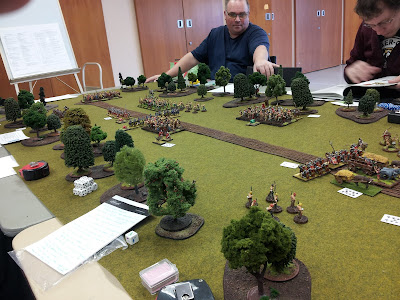** Opinion Alert**
For many years, I've been morbidly fascinated by books that have been called "Negative Utopias." These are not happy, up-beat books; in fact, some are quite hopeless. I'd be willing to guess that many of those who read this ramblings have read them as well. What I write will not do justice to any of the books."Utopia" means "nowhere", plain and simple. It is a term used to describe a wonderful place of justice, sweetness, and light. (Maybe a little Christian Communism, too.) This goes back to a written work of Sir Thomas More (known many places as St. Thomas More), an English writer/lawyer/politician/philosopher who served as Lord Chancellor to King Henry VIII. He objected to Henry's ecclesiastical policies and serial marriages and was executed in 1535. I'll leave aside all the ins and outs of his life and just say he coined the term "Utopia" as it is used now. To be honest, I haven't read his book.
One of my earliest reads was George Orwell's 1984. Orwell went to Spain to fight the fascists/nationalists in that confusing conflict. He volunteered to fight with the militia of the POUM (Partido Obrero de Unificación Marxista or the Worker's Party of Marxist Unification), the non-Comintern Communist group. Since they didn't toe the line of the more orthodox/Stalinist Spanish Communist Party, Orwell's group was denied supplies and eventually purged due to somewhat imagined treason. Orwell became disillusioned with the authoritarianism he saw there. This influence his later writing, especially in 1984. One of the main tenants in the book was "the mutability of the past" and how the present controlled the past. A new language was developed ("Newspeak") which would eventually wipe out thought not permitted by the "Party."
Aldous Huxley's Brave New World posited a world where social/occupational classes were structured around pre-natal conditioning that permitted them to be completely happy in the roles society assigned them. Moods were controlled by means of chemicals (Yeah, let say drugs) and sexuality was strictly for pleasure and never for procreation. The castes (Alpha to Epsilon) usually didn't mix and conditioning reinforced that. A religion of sorts (all action and no content) was conditioned into the lower classes, like Gammas and Deltas.
Jack London is known for his "dog stories", but he was an enthusiastic Socialist and wrote a very dark negative utopia, The Iron Heel. In this book, the United States is controlled by an oligarchy made up of major capitalists who oppress the working class through the use of hired thugs at first, then through a class of soldiers - the "Mercenaries" - who live apart from the workers in their own cities. The working class was also controlled by the threat of replacement by the very poor who could be moved by the oligarchs to take over the work and even rebuild wrecked cities. One of the main characters calls these poor, "the people of abyss." The book is written from the viewpoint of future history researchers who note that the story is incomplete and the fate of the main characters is unknown.
Every few year, I re-read Ray Bradbury's Fahrenheit 451, the story of a United States in which all books are banned and in which fireman don't fight fires but burn books as well as the houses where they are found. Books cause people to think and thinking makes people unhappy, so books are forbidden. Entertainment is delivered by huge wall size television screens. The main character's wife is far more interested in the TV shows than she is in her husband. The main character, Montag, is a fireman who begins to question the present way of things. As a nuclear war begins, he escapes into a wilderness of sorts where he meets people who have memorized books... like him, since he has memorized part of the Judeo-Christian Bible.
I like Bradbury's writing; it almost seems like poetry.
 |
| 451° Fahrenheit is the temperature at which paper burns. |
V for Vendetta is more of a graphic novel than a literary one and many of us have seen the film of the same name. There's lots of mind control and religious-political intertwining in an oppressive Great Britain, just about all of which is hypocritical and sordid. Plagues are used to push undesirable people into subservient positions, if not out of the country all together. Cynical religion is used to prop up a dictatorship. The structure is rotten and one man, a victimized person in a Guy Fawkes mask, who can feel no pain and has a huge revenge fixation, is able motivate the mass of citizens to pull it down. Of course, the houses of Parliament are demolished in an explosion and the story ends (at least in the film) with everything up in the air and in potential.
I know I've missed any number of similar novels and those that I've described are not done justice. I've just been struck lately by how current many of these themes are in modern life in the United States. A sense of religious fascism... a whiff of oligarchy... a distrust of institutions and the conditioning they carry... among many others. The present talk of "alternative facts", of leadership-not-to-be-questioned, and a naked resurfacing of Goebbel's Big Lie are disquieting.
As a Christian pastor, I'm more than a bit disturbed by the equating of Christians with a power-hungry cynicism, fear of "the other", and twisting of Scriptural and doctrinal ideas that should lead to freedom to make a justification for oppression.
Well, I know I'm probably wrong and more that a little half-a**ed, but I felt I need to say what I needed to say.




































